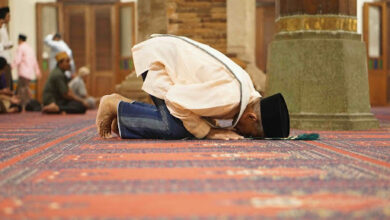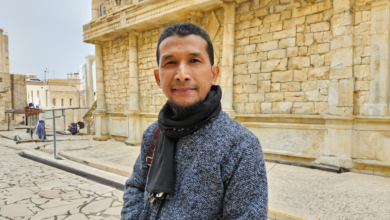
DDHK.ORG - Recently, news about climate change has resurfaced and has received special attention from all countries in the world because of the real threat in the future.
The United Nations Framework Convention on Climate Change (UNFCCC) defines climate change as climate change caused either directly or indirectly by human activities that alter the composition of the global atmosphere and climate variability. naturally over comparable time periods.
Study of the United Nations Framework Convention on Climate Change (UNFCCC), that 1,5 billion workers will be affected by climate change.
For Indonesia?
Indonesia As an archipelagic country this threat is very real. In the IPCC (Intergovernmental Panel on Climate Change) report regarding the impact of climate change in south east Asia, Indonesia is one of the countries that is seen to be experiencing a tremendous impact. Starting from warming that can become forest fires, to floods that can hit cities in Indonesia, including in this case sea level rise.
Therefore Dompet Dhuafa as an Islamic philanthropic institution, and all of us who act as caliph fil ard continue to strive to protect the environment and convey prophetic messages in the environmental awareness movement.
If you trace the texts of the hadith of the Prophet , you will find a number of narrations containing orders to protect nature and prohibit environmental destruction. The hadith, among others:
First, about saving on water. This recommendation to save water is seen, among other things, in the use of water for purification from hadas, both small and large.
The Messenger of Allah asked the people not to waste water during ablution, which is enough for one mud (1,5 liters according to the Hijaz measure and two liters according to the size of the Iraqis. There are scholars who give half a liter worth).
From Anas bin Malik radhiyallahu 'anhu, he said,
انَ النَّبِيُّ لَّى اللهُ لَيْهِ لَّمَ الْمُدِّ، لُ الصَّاعِ، لَى ادٍ
"The Prophet performed ablution with one mud (water) and bathed with one sha' up to five mud (water)." (Hadith narrated by Bukhari no. 198 and Muslim no. 325).
Second, the history of Imam Ahmad and Abu Daud about prohibiting and destroying nature which is needed by many people and other creatures such as water, air, and land. In another hadith text Rasulullah reminds us to be careful with two curses:
- Peeing in the middle of the road. In this case, it can be interpreted broadly related to the prohibition of throwing something that is not good (can be garbage and something that injures) in the middle of the road (or not in its place).
- Damage plants by cutting branches without benefit or cutting the bark. This is like the prohibition of the Prophet when someone cuts a bidara tree.
The bidara tree is a type of large and shady tree. Besides being useful as a water absorber, bidara is also useful for shelter. In the current context, the destruction of plants that have similar criteria can be analogized, for example, with activities that destroy forests or water catchment areas.
Third, promote reforestation. Replanting trees in vacant land is useful for the sustainability of the ecosystem.
By planting these trees, it is useful to absorb water and reduce the risk of floods and landslides. It is not impossible if managed properly can reap results that have high economic value.
This can be done through land waqf programs and economic empowerment on unused land. Education to invite wakif and candidate wakif in this kindness movement.
Reviving the dead land in Islam is commonly known as ihya al-mawat. In As Sunnah, Sayyid Sabiq explained that ihya al mawat is the cultivation of vacant land that has not been processed and has not been owned by someone to be used as productive land. The activity of reviving the dead land is to make use of it.
The Prophet also said,
ا ا لَهُ ا ا لَهُ الْعَوَافِيُّ لَهُ
"Whoever revives the dead land, then there he will get a reward and the plants eaten by small animals (such as birds or wild animals), then it becomes a charity for him." (HR. Ahmad).
>>>[Presented by Ustadz Ahmad Fauzi Qosim, Da'wah & Humanitarian Activist, Secretary of the Sharia Council Dompet Dhuafa at the Friday sermon at the Cordofa Stage mosque, 27 August 2021] [DDHKNews]



